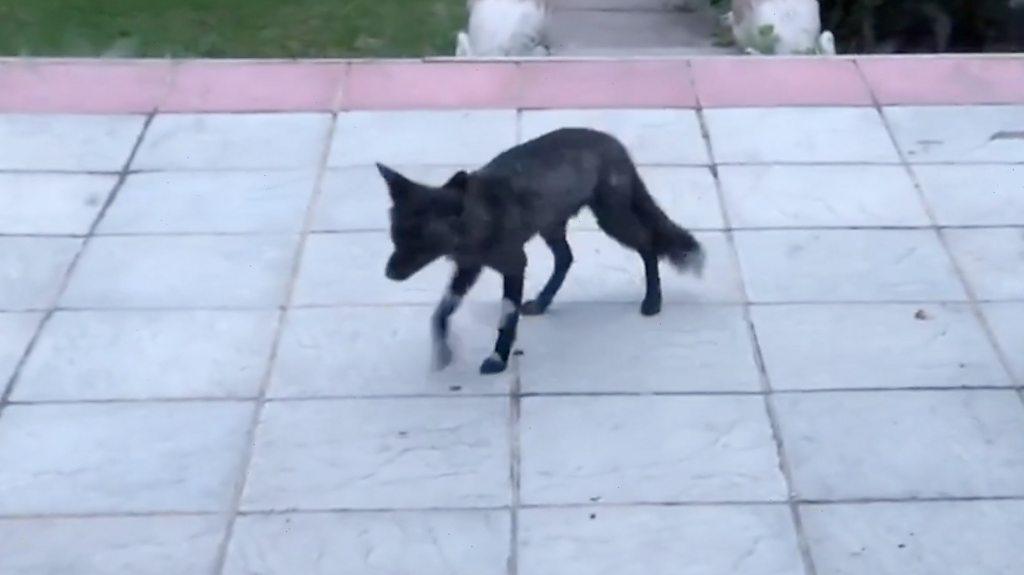New project researches how gardens can help the environment
- Published
- comments
A new gardening science centre has opened at RHS Wisely
London is sometimes called one of the world's greenest cities. Not only because the capital has a large number of parks, commons and green spaces, but because it also has a patchwork of hundreds of thousands of gardens.
Of course, not every house in the city has a garden, but if a property is lucky enough to have one, it is important for its contribution in creating natural habitats.
According to a report by the London Wildlife Trust in 2011, the total number of homes with gardens was estimated to be about 3.8 million.
The report saw an equal number of front and back gardens, with a total area of garden measuring about 37,900 hectares.
This equated to 24% of Greater London's total area.
So what if those gardens could be used to increase their impact on the environment in a positive way?
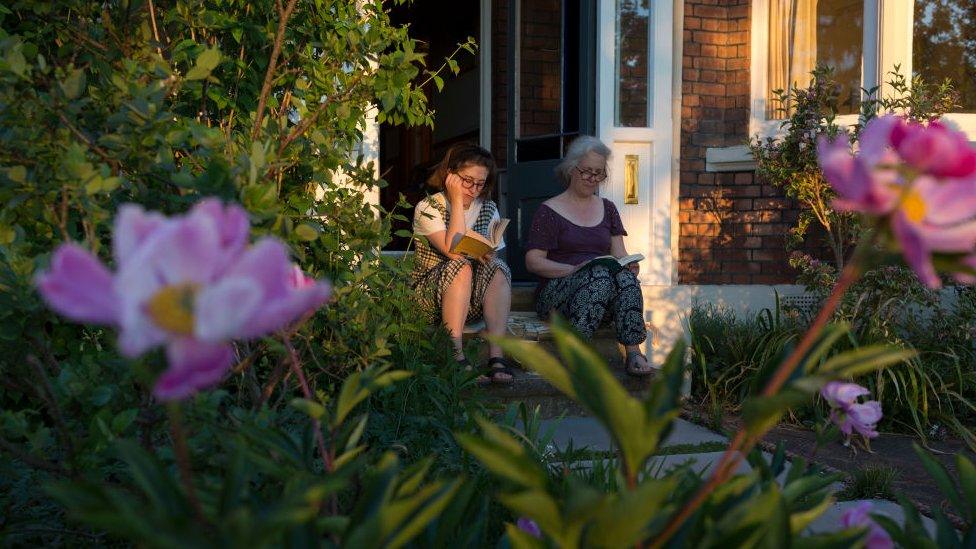
Researches will try and determine which plant is the best at absorbing pollution
That's the mission of RHS Wisley in Surrey, which is located next to the M25.
The RHS is perhaps better known for its own gardens but it has an academic and scientific department that it now wants to publicise further.
Its new project, named RHS Hilltop, has seen hundreds of researchers and academics discovering which plants are best for the environment, or for absorbing floodwater, for example.
Researches will also try to determine which plant is the best at absorbing pollution, which plants absorb the most carbon and help with climate change, and explore why nature is so good for mental health.
One experiment already being carried out with volunteers is if a flower's scent or colour provokes the same emotional response in people.
The centre will also house the RHS Herbarium - the UK's largest collection of cultivated plants, with more than 86,000 dried plant specimens.
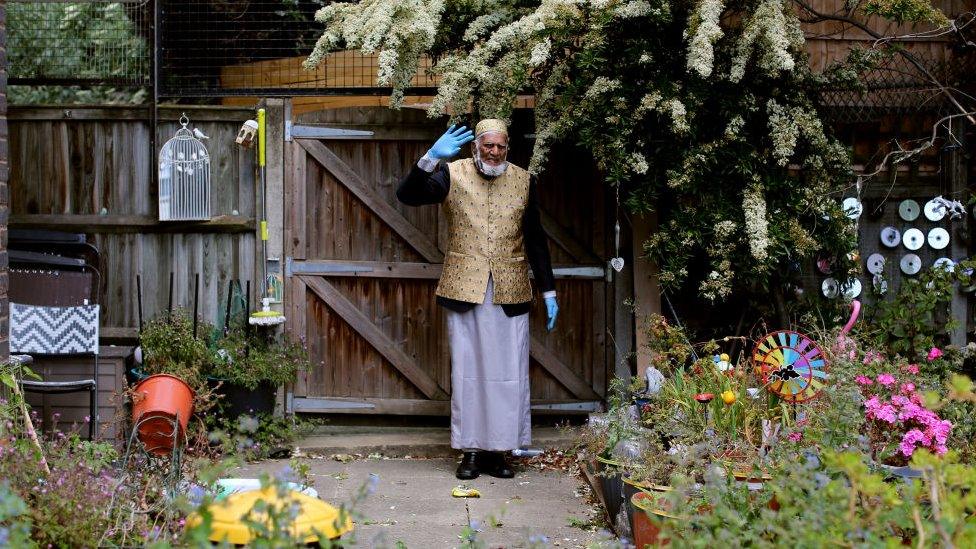
Experts will share best practice with gardeners across the world to try to improve the environment for everyone
With all this new knowledge, the team will share best practice with gardeners across the world to try to improve the environment for everyone.
Alistair Griffiths is the director of science: "I think this centre will make a huge difference, in relation to protecting our gardens from new pests and diseases, to putting choices of plants that use less water. Or that do capture more pollution and more carbon.
"The way that we garden, the information and science we learn, we want to share that so that people can be inspired to grow and be more connected with nature."
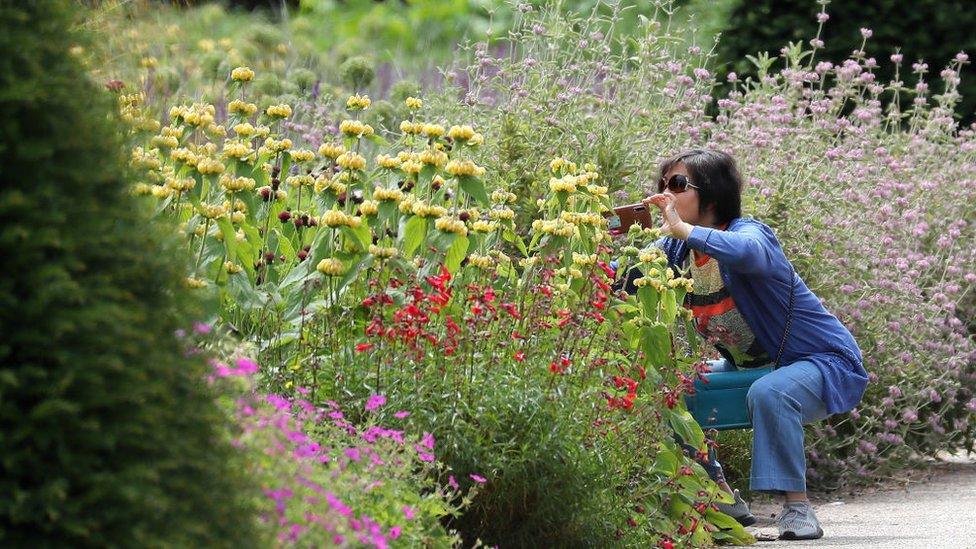
Related topics
- Published27 November 2020
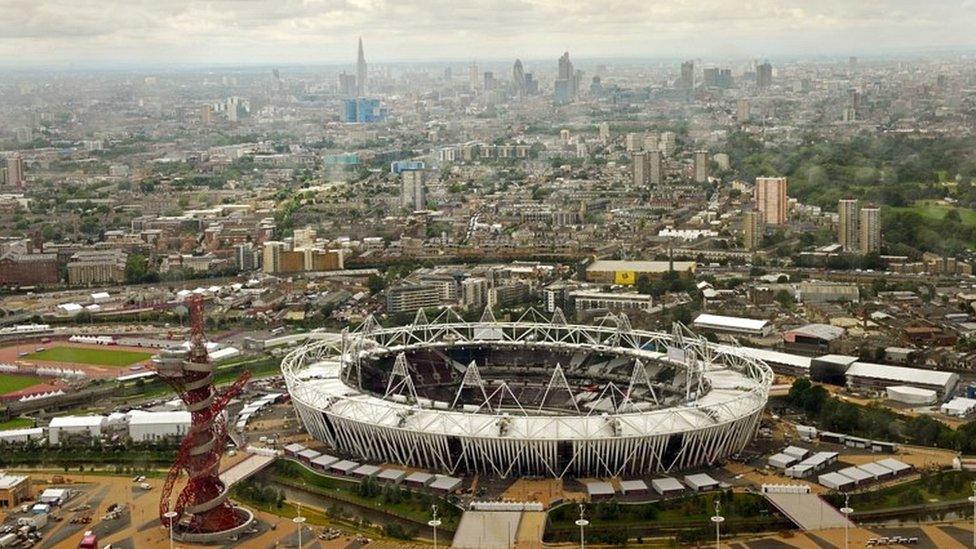
- Published8 June 2013
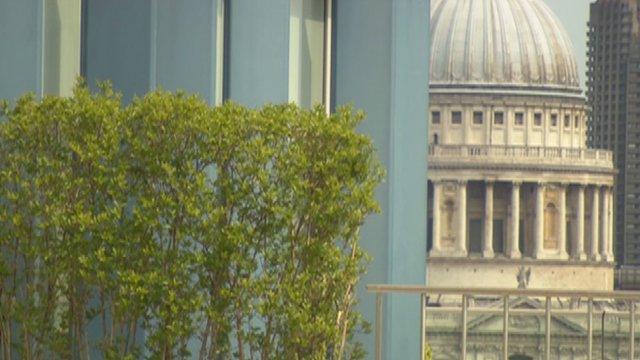
- Published4 March 2021
